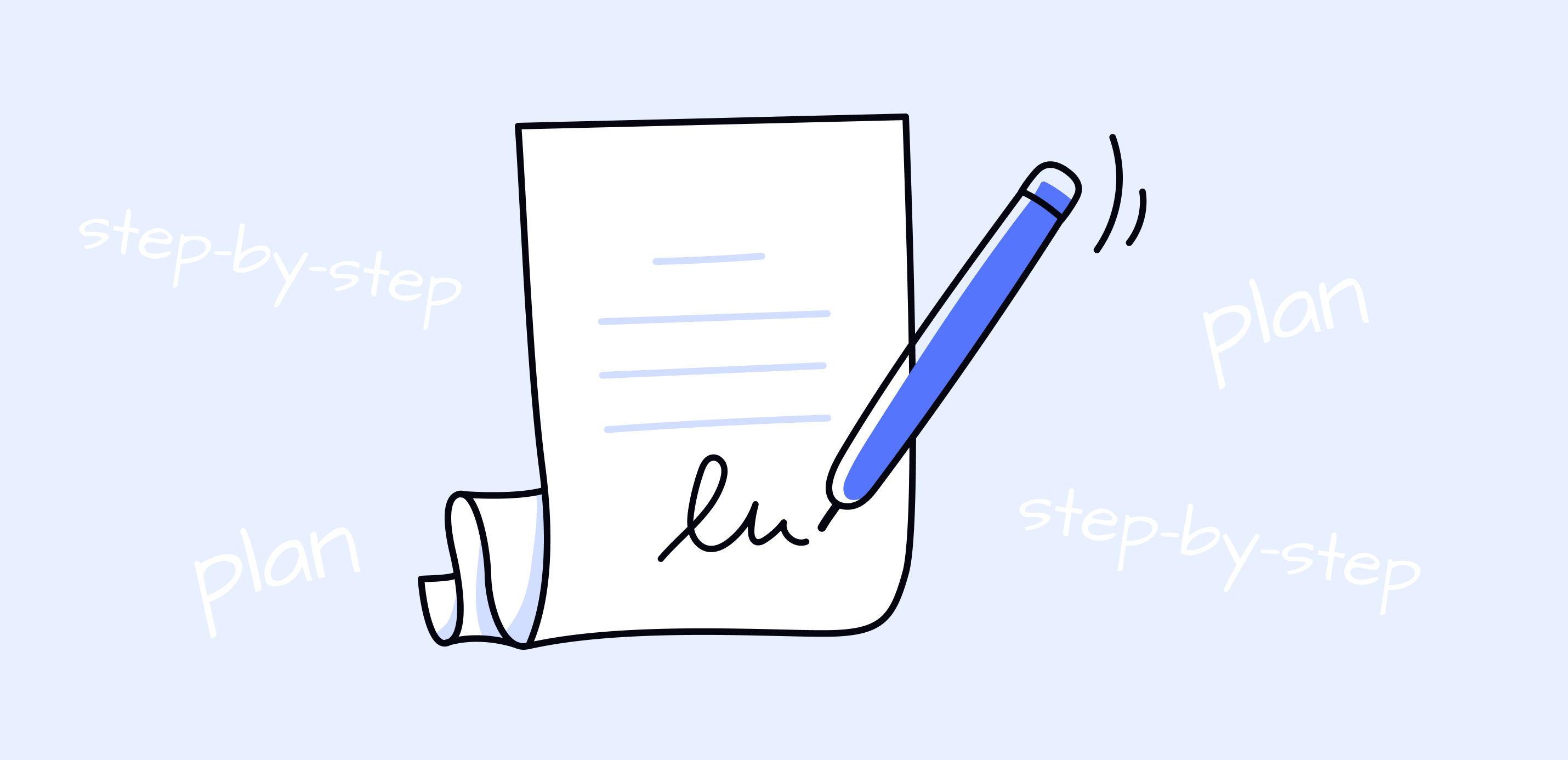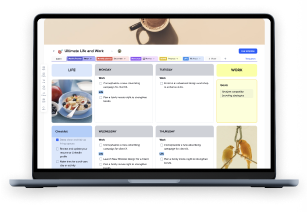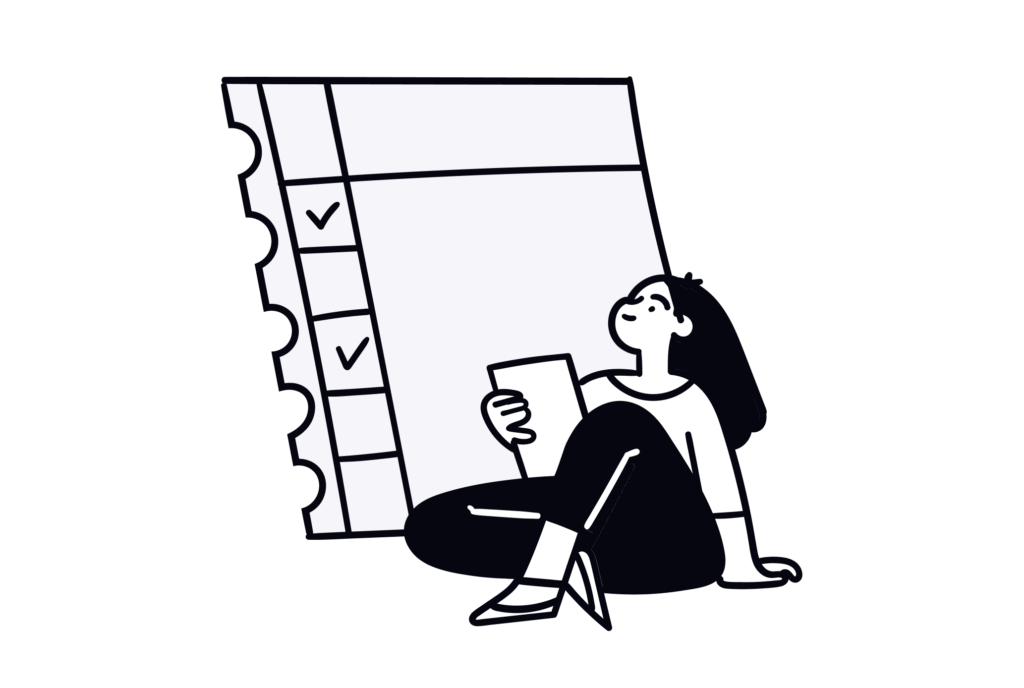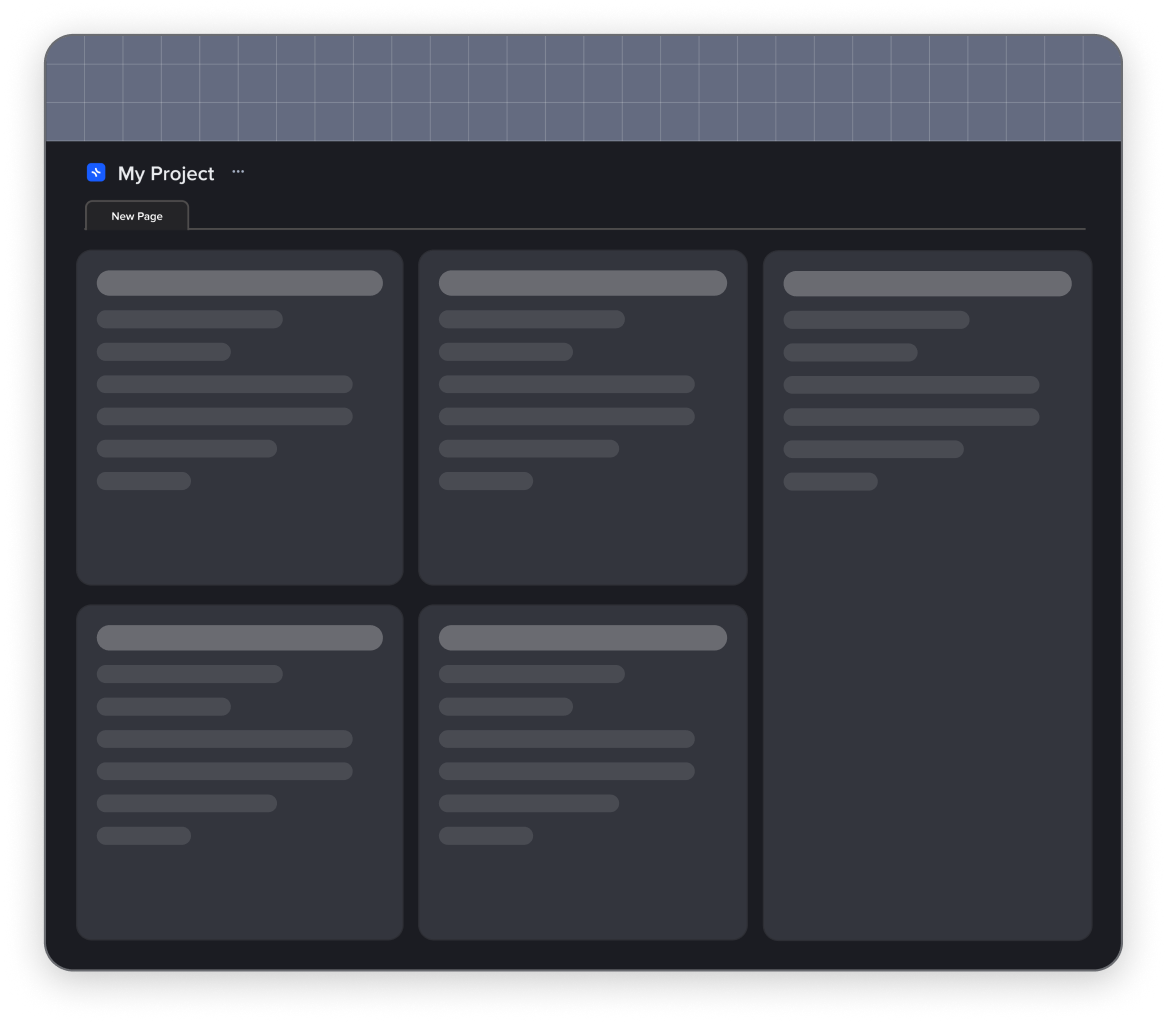How frequently do you engage in planning before embarking on a task? If the concept of planning eludes you and you’re unsure of how to plan effectively, you’re headed in the right direction by seeking guidance here.
Alternatively, if you’ve attempted planning a few times but encountered difficulties, rest assured you’ve landed in the right place. Even if planning is your preferred pursuit and your shelves are brimming with notebooks and planners, you’ll find valuable insights and strategies to enhance your planning skills here.
There are only two possible scenarios for any project/dream/goal implementation:
- You get an idea, you set a goal, you make a plan, you start implementing it, you complete tasks, and you get the desired results.
- You get an idea, you set a goal, you put all of your energy into reaching it, you get stuck, you get lost, you find yourself in the opposite direction from where you were supposed to be. You need to start all over again.
Which one seems more attractive to you? And which one is what usually happens to you?
Knowing how to create a business plan, a workout plan, a budget, a lesson plan, or a marketing plan is half the battle toward success. Without a well-thought-out and structured plan, any of your goals are nothing more than mere wishes.
You belittle your ideas without creating a plan for their implementation. So, let’s build an effective plan together in xTiles.
What benefits will I get if I start planning?

Except for helping you reach your goal and make your ideas come true, planning is a useful habit that brings many benefits to your life. Once it becomes a part of your usual behavior, you will become a new person:
- you will become more focused and determined
- you will stay motivated no matter the constantly changing circumstances
- you will be able to track your progress to clearly see how far you have come
- you will get a fresh perspective of your doings
- you will be able to relieve stress
- you will get a sense of accomplishment
- you will get numerous new opportunities for growth and progress where once was a dead end, etc.
This is only a short list of what you can get after starting planning. If you conduct a brief research and examine other people’s experiences, you will see that the outcome depends on the individual who learns how to plan.
However, if you have never planned your future actions in detail or if your previous attempts were unsuccessful, you may need more information to understand what exactly planning will bring to your life.
Here is a short list of benefits you may get. Also, please note that everyone is different, and every case is different, so besides some general benefits many people experience, you may also find some specific advantages according to your way of living.
1. A planning process will clarify your goals and objectives

New ideas and strong impulses make us feel unbeatable. It may seem there are no obstacles ahead of you, and even if there are some, they will be a piece of cake. However, this feeling is usually misleading. Those obstacles and blockers you can’t see may have significant consequences.
Careful planning makes this first impression lose its effect on you, and you can see more clearly. Perhaps you will need to slightly adjust your goal to make it more realistic or better suited to your needs.
When you plan regularly, the ability to analyze your goals and objectives becomes the most natural thing you can do.
2. A plan will improve your decision-making skills
Generally speaking, there are two types of people when it comes to making decisions: those who fear nothing and are ready to risk without second thoughts, and those who ponder a decision multiple times before proceeding, yet still hesitate. Neither of these decision-making styles is inherently better than the other; they simply exist.
The first ones need the second ones to contemplate concepts, and the second ones need the first one to get that project finally started.
If creating a plan always precedes actions, you will have little or no problem making decisions because you have the whole picture ahead of you.
3. A plan will increase your efficiency

How many of your ideas didn’t make it to the finish? Have some thoughts on what exactly went wrong?
9 out of 10 times, the lack of planning brings a high risk of failure, or you leave your intent in the middle of the road. Having a structured plan motivates you to start and continue, and a motivated person is an effective person.
In other words, having a plan decreases your chances of quitting your goal, whether its losing weight, making more money, or starting a business.
4. A plan will help you reduce or avoid risks
When an idea only flashes into your mind, it’s almost impossible to see what risks it may bring. If there’s no plan, every risk or obstacle you will face during the process will be a surprise. Usually, not pleasant ones.
When you start your action by contemplating your intent and coming up with a detailed step-by-step plan, you protect yourself from risks that might bring losses.
Sometimes, risks and how you overcome them are an essential part of the development process and may transform your goal into something even more interesting.
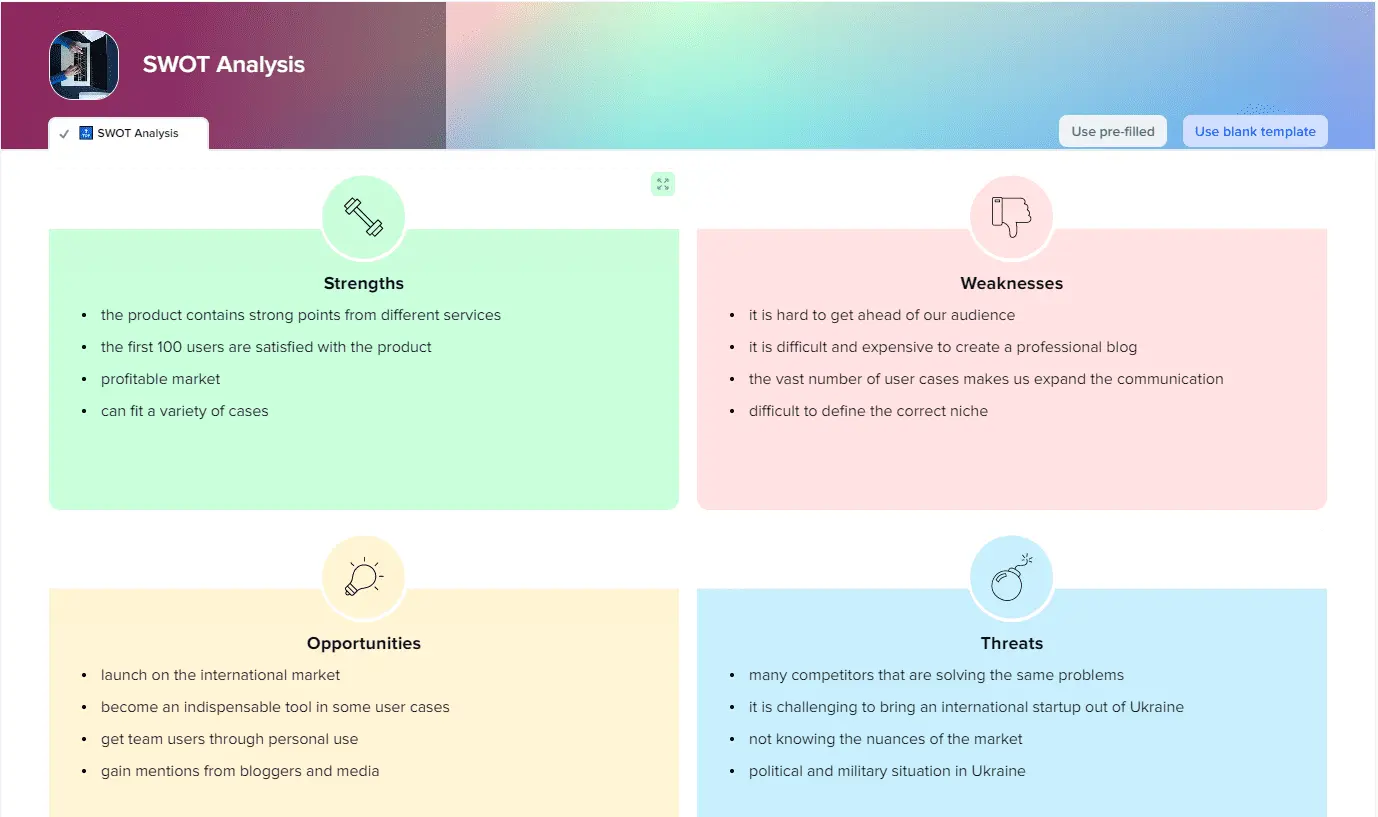
Tip #1: You may also use the xTiles SWOT Analysis Template to define possible threats and opportunities of your idea.
5. A plan will increase your productivity
You might work long hours, give 100%, and still feel overwhelmed because the desired outcome is as far as it was when you started.
Having the skill of planning polished, you get the ability to manage a couple of plans at the same time. You juggle many tasks easily and efficiently without asking yourself, “What’s next?” every time you’re in doubt or finish one of the milestones.
6. A plan will improve your self-confidence and self-awareness

The importance of faith in yourself can barely be overestimated. How would you feel about yourself after you’ve finished something great? Probably, like you have won this life or like you’re on top of the world. Now imagine that one of your ideas gets implemented successfully after another. Will there be something you can’t do? Doubtfully.
The ability to plan strengthens your self-confidence hugely by giving you a positive experience. Additionally, if you integrate two more skills – prioritizing tasks and delegating tasks into your planning process, you will become truly unstoppable, fostering deep and close relationships with yourself.
Planning is about asking yourself many questions. It teaches you to be in alignment with yourself, your energy, and your desires. If you plan all of your actions regularly, you become more self-aware.
7. A plan will enhance communication
If you work on a team and many people are involved, how well you communicate and understand your main goal will define how well you all will work together toward this goal.
If you keep asking your teammates or your managers, “What is next?” “What should I do?” or “What is relevant right now?” then you lack established communication. A well-structured action plan divided into manageable chunks shared with every team member answers tons of questions and saves hours of time, ensuring all of you are on the same page.
Also, when you plan effectively your team workflow, you empower and support each team member by assigning them tasks that are achievable.
8. A plan will promote accountability

When you have some ephemeral task ahead of you, it may be hard to feel attached to it and whether it will be or not be accomplished. An established plan leaves you no ways to escape or at least less of them.
A good plan will help you understand why your actions are crucial and why you can’t stop. It will connect with your consciousness, helping you remember why it’s critical to continue.
The planning process teaches you discipline. It’s like a contract you sign with yourself.
Please note that if your plan puts you under a great deal of stress, maybe there’s something wrong with it, and it’s better to revise it until it’s not too late. I believe a plan (no matter what its final intention is) should be comfortable and non-traumatic.
How to make a plan to succeed
Planning effectively may be challenging, especially if you have no positive experience. Most people consciously limit their planning skill development by learning how to make a lose weight plan or how to make a study plan, etc. If planning is yet to be learned, it’s better to start from general matters and slowly move towards more specific ones.
The approach I want to discuss is suitable for a wide variety of cases.
Before we start, let’s assume you have a big dream that can’t come true overnight, or you need to prepare a plan for your team to deliver a product on time. Our main task is definitely creating an effective plan. However, our side task is creating a plan that will be comfortable for people who will stick to it. So, let’s do it together.
1. Define your goal and motivation
You need to understand what exactly you want/need to get in the end before you start planning. Otherwise, your plan will be irrelevant, unsuitable, and misleading.
The most crucial thing at this stage is being honest with yourself. You need to conduct research that will shape your future progress. Listen to yourself and why you want to make this or that dream or goal come true. Write down your thoughts. Give them time to evolve in your head. It might take some time, yet you will get a sense of why the given goal is truly important for you.
Being honest with yourself is also about setting realistic goals. When a manager or a person in charge sets unrealistic goals for a team, they substitute others and start a game that will lead to failure.
Sometimes the road is more pleasant than coming to your destination, and a thought-out plan will help ensure you don’t struggle and suffer along the way.
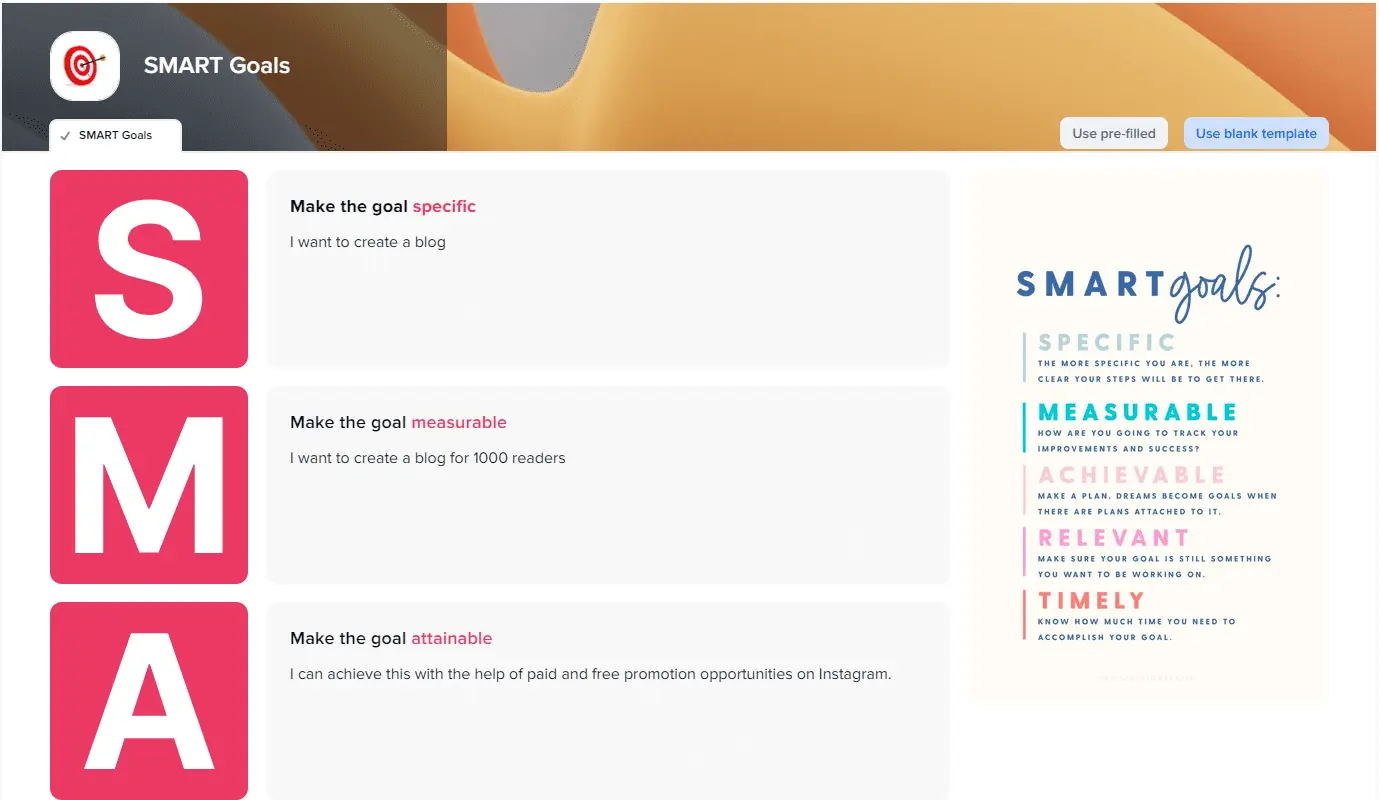
Tip #2: You may try the xTiles SMART Goals Template to ensure your tasks are specific, measurable, achievable, relevant, and time-bound.
Tip #3: Once you’re sure about your goal, solidify it using one of xTiles planner templates. Check our Template Gallery to find the one that suits your needs.
2. Divide your dream into chunks
When you have your goal defined, work backward. This process will help you understand what steps you need to take to achieve your end goal. For example, you want to make enough money to buy your own house in two years. What will you need to achieve this? Get a new job with a higher salary? Start your own business? Just decide on the steps that resonate with your capacities and your big goals.
Large tasks can seem overwhelming and too hard to even try. They steal your energy and make you feel devastated when you haven’t even started yet. So, breaking a task into smaller time-bound steps may be an intelligent decision to keep you going.
Small goals rarely require a planning process. You can keep the whole intent in your mind without missing anything important. However, when it comes to significant goals, it will be hard to keep the whole picture in mind only.
Define what stages your plan will have. You may break it down into as many small tasks as you wish. Checking boxes may have a positive impact on your mood, current organization, and motivation to move.
However, a long list of tasks, even small ones, may also have a negative impact. That’s why you need to follow your personal preferences and inclinations and learn how to prioritize and delegate tasks. Also, regularly review your action plan to ensure its steps are still relevant because situations keep changing, especially if you work on them regularly.
Also, when you create a plan for a project where many people will be involved, you need to take care of the organization of the workflow. Divide a big task into smaller ones so that people won’t need to decide on their own, turning the whole thing into chaos.
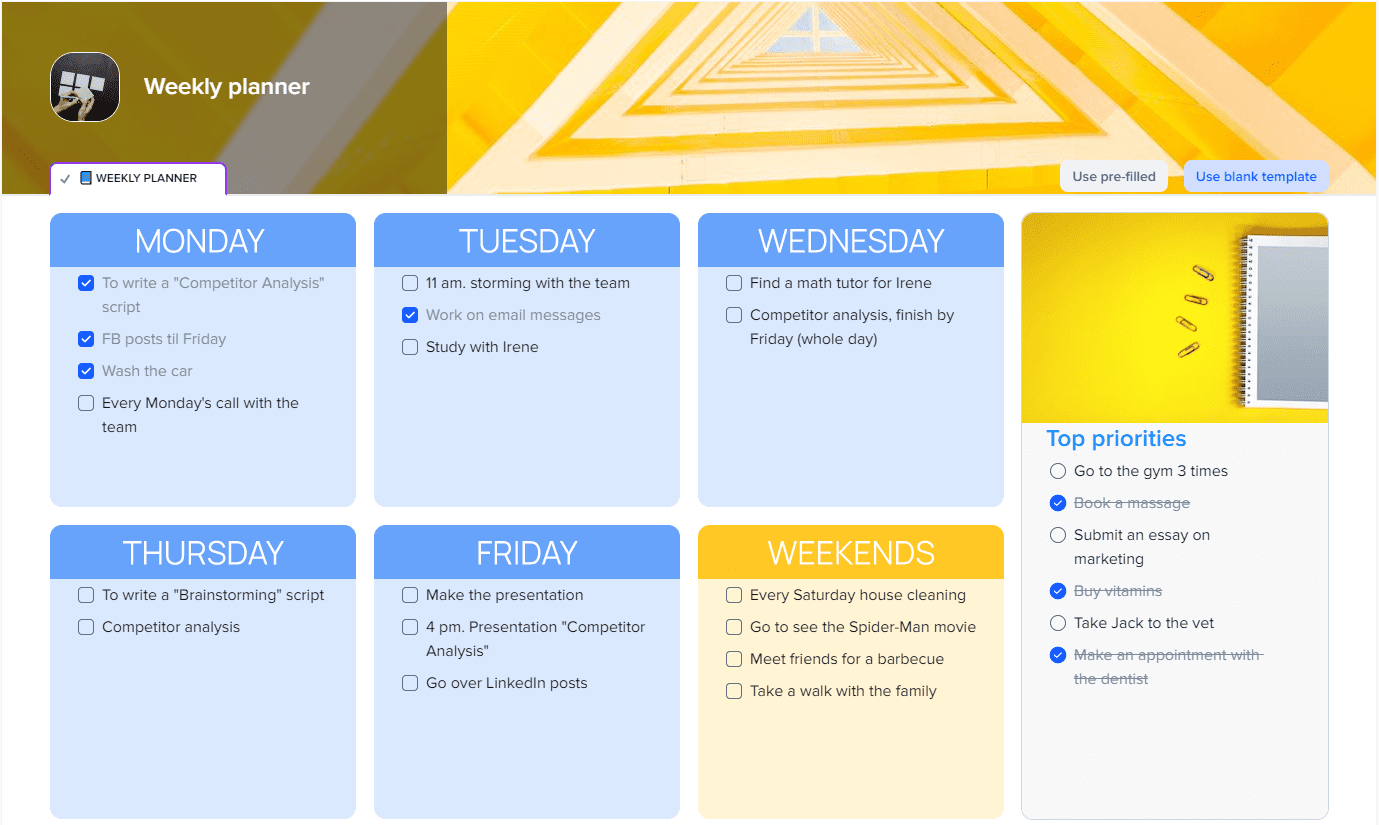
Tip #4: You may use Daily or Weekly Planners to track your progress at a smaller distance.
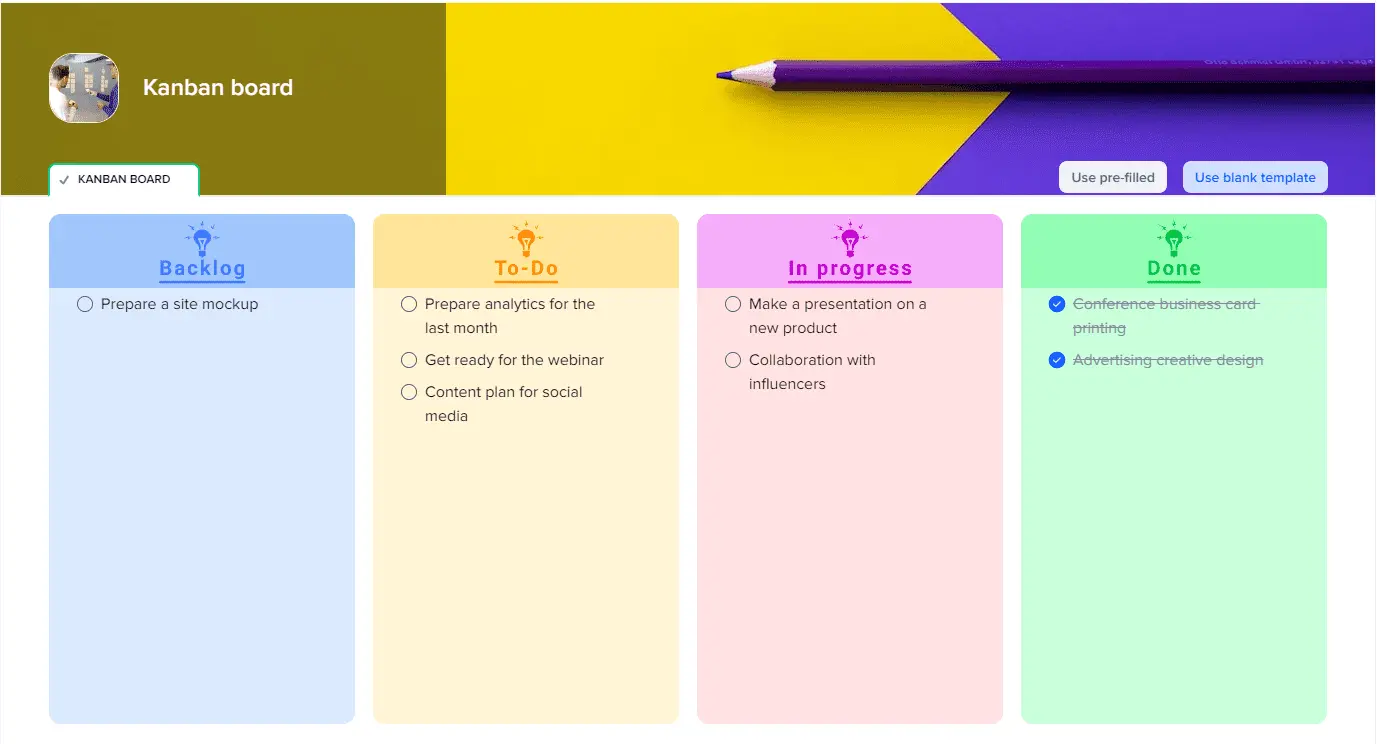
Tip #5: You may use the xTiles KanBan Board Template to organize your team workflow around your plan.
3. Prioritize
Now that you have a list of what you need to do to accomplish your action plan, you need to prioritize them wisely. It will save you from burning out during the starting phases of your project.
For one more time, you need to listen to yourself. Your plan isn’t engraved on stone. You’re free to change it.
If we talk about a plan for a team, you will need to discuss it with people who will be involved. Ensure everyone feels alright with their role and the scope of the job they will need to accomplish.
If you’re not feeling like doing great things today, this week, or this month, don’t torment yourself because of that. Choose those tasks that require little effort and resources yet still make you closer to your dream.
When you create a plan for a team, don’t entrust only the hardest tasks to the toughest person. Give them something to rest a bit too.
4. Use time management techniques
Devoting yourself entirely and every second of your time may not be the best strategy. Usually, it leads to fast burnout, or you simply become so tired of your tasks that you prefer to do anything but finish them. Also, sometimes, you simply have too little time if the
Having time allotted for certain tasks saves you from working more than you need and more than you can without harm to other spheres of your life.
Time management techniques will help you stay productive while devoting a minimum of your time. They also help you maintain a healthy work-life balance.
One of the most popular (I like to use it myself and keep recommending it to my friends and colleagues) is the Pomodoro technique. You work for a set amount of time (for me, the session usually lasts 30 minutes) and take a short break before starting again.
Also, I like the 20-20-20 rule. It’s not quite a time management technique, but it’s similar to the Pomodoro method. After every 20 minutes of focused work, you can have a very short break to look at something 20 feet away from you for 20 seconds.
5. Eliminate distractions

Plan your leisure, too. If you know you’re going to watch a film this evening or go out, you don’t have to look for every opportunity to relax. You simply know that there will be a certain time for relaxation, so you can now research, focus, work, create, and eventually succeed.
If we talk about teams, you can’t control every team member. You can only provide them with a clear understanding of why we need this task done on time and successfully and make the whole process fun and thrilling, allowing them to progress in their own way.
Also, be ready that blockers will appear sooner or later, but stay strong. You can check that meme or a TikTok video from your friend later, even though you want to know what is there. For example, when I need to work, I prefer to mute my phone or at least turn off all the notifications from messengers I use. If there’s something important, a person will call me.
Some of my friends go even further. They leave their smartphones in other rooms, put them in file cabinets, etc., to focus better. I think it’s too much. Having your device near you while working will help you train your will and focus. After all, if you work on something interesting, you probably won’t even notice that you just received a message.
6. Review and adjust
After you have achieved some intermediate results, you may see that your plan needs to be adjusted in order to lead you to your initial goal, and that’s okay. Reviewing your plan is an important part of planning. Changes will help you stay on track and ensure you are making progress toward your goals.
When you only start, you may not see all the possibilities and threats that might stand between you and success. Something may stay unclear until you start working. That’s why adjusting your plan during the implementation makes it better, more workable, and more beneficial for the results.
If you work on a team, you may schedule regular meetings every week, every month, or whenever the need arises to see whether everything is working how it’s supposed to and whether there is some progress or not. The more side views and different opinions you get, the easier it will be to spot the breach.
The guide you’ve just read is as general and versatile as possible to become your reliable tool in all kinds of situations.
Summing Up
For many years, we’ve been taught that hard work is the key to success. Well, partially, it’s true. In reality, you definitely won’t succeed without putting in effort. However, somehow, no one tells us that it’s only a part of the secret. The rest involves your goals, followed by your ability to plan the way toward your goal and stick to it.
While intents or goals are mostly emotional concepts that emerge from the depth of our personalities, the skill of planning totally depends on our determination to finish what we’ve started. The best thing is that you can learn how to do it correctly.
Planning may seem unnecessary, time-consuming, exceeding, etc., at first, while in practice, a plan is your Ariadne’s Thread from a labyrinth of hard decisions, blockers, obstacles, indecisiveness, procrastination, and laziness.
The importance of a good plan is that it allows you to have smart goals, which are easier to achieve, create, track progress, and enjoy what you’re doing. It brings a gift of organization to your life.
FAQ
Why is planning important for success?
Planning is crucial for success because it clarifies goals, improves decision-making skills, increases efficiency, reduces or avoids risks, enhances productivity, boosts self-confidence and self-awareness, enhances communication, and promotes accountability.
How does planning improve decision-making?
Planning provides a clear picture of the steps needed to achieve a goal, making decision-making easier as you have the entire path laid out before you. It allows you to consider various factors and scenarios, enabling better-informed decisions.
What benefits can I expect from effective planning?
Effective planning not only helps in achieving goals but also fosters focus, determination, motivation, progress tracking, stress relief, a sense of accomplishment, growth opportunities, and improved self-awareness, leading to a fulfilling life.
How does planning support team workflow?
Effective planning in team workflows ensures each member receives achievable tasks, promotes communication, enhances productivity, fosters accountability, and facilitates a clear understanding of shared goals, leading to cohesive and efficient teamwork.


